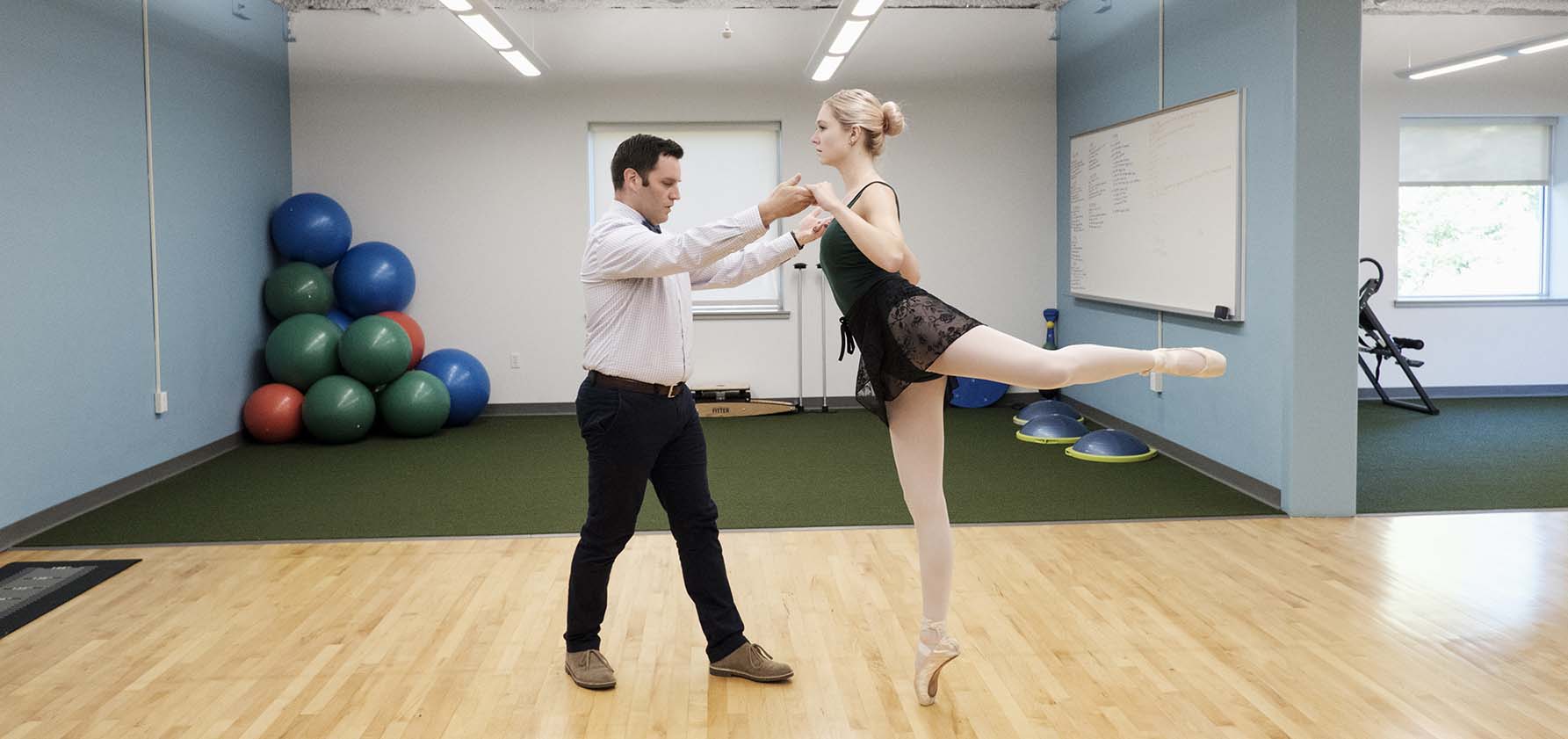
March 6th’s Performing Arts Athletic Trainers’ Society (PAATS) Symposium served as a virtual showcase of Moravian’s Sports Medicine and Rehabilitation Sciences, with a panel of presenters consisting entirely of professors from the department.
More than 60 athletic trainers who work within performing arts attended the virtual continuing education event hosted by Moravian College and organized by assistant professor David Wilkenfeld, clinical education coordinator for the master of science in athletic training program.
“When I was originally approached by the organization, I started brainstorming some of the hot topics that I’ve come across in my own clinical practice, and as I started to develop those general ideas, I realized that we have all of these in-house experts here who could potentially provide these talks. PAATS was really supportive and on board with basically having a Moravian show,” Wilkenfeld says.
He turned to the department’s athletic trainers, occupational therapists, physical therapists, and speech language pathologists to deliver a well-rounded program covering topics ranging from vocal health to mental health to COVID’s impact on live arts performances. If there was one overarching theme to the speakers’ presentations it would understandably be adapting to the challenges of working during a global pandemic.
Assistant Professor of Occupational Therapy Sara Benham discussed how she’s managed to modify treatments in telehealth appointments during a talk focused on technology adaptations for people with disabilities to play musical instruments.
“Traditionally in a clinic, therapists will trial-and-error multiple types of equipment or positioning with patients to achieve the just-right match for the patient’s needs,” Benham says. “However with the pandemic, some clinics are still utilizing telehealth during treatment sessions. I discussed possible household item materials to use and other do-it-yourself methods to approach solving a problem that the patient may have in their own home during a telehealth session.”
In these days of endless Zoom meetings and masked conversations, adjunct professor Carly Bergey shared her insights in Vocal Health: A Speech-Language Pathologist’s Perspective. “I addressed the various ways that the pandemic has impacted voice, specifically mask wearing, speaking over Zoom without listener feedback, the isolation and stress and its impact on muscle tension, and voice production. All of these are important factors to consider in voice care, especially right now!
“As a voice therapist, I find that speaking into a microphone with headphones allows me to hear my voice, and that feedback helps me not to be tempted to strain or push my voice because of that valuable biofeedback. In a nonvirtual setting, this is often not the case,” Bergey says.
Director of the Doctor of Athletic Training Program Jennifer Ostrowski touched upon the mental health challenges of the pandemic as she explored methods for identifying and supporting patients suffering from suicidal thoughts.
“Perhaps one of the only ‘good things’ to come from this pandemic is a more global focus on mental health,” she explains. “Mental illness is certainly not new and impacts 20 to 30 percent of the population annually; however, as a society we have become much more tuned in and accepting of individuals who experience mental illness and mental health challenges. Increased awareness, empathy, and understanding are never a bad thing and are a great first step in decreasing the stigma associated with mental illness.”
The COVID Round Table Discussion: A Return to Performance during the Pandemic with Elaine Winslow, Kristin Miller, Kori Kirshner, Kendall Goldberg, and Megan Bane featured five working professionals who, Wilkenfeld says, “over the course of this past year have been basically put through the ringer in terms of having to adapt to the changing environments,” transitioning into roles such as COVID compliance officer.
“A take-home message from those individuals on the panel was that the jobs are still out there, you just need to be a little bit more creative. The arts are still moving forward in some capacity, but you just may need to rebrand yourself and be adaptable,” he adds.
As the panel’s moderator, Wilkenfeld says that there were many questions for the presenters in regard to how they were managing family life while assuming the health risks in their job. And attendees further bonded over the shared stressors of the last year during a concluding virtual happy hour.
With a panel that happened to feature an interdisciplinary group of women in science, Wilkenfeld also noted that the timing of the event was especially poignant occurring during Women’s History Month and International Women’s Day.
PAATS is already looking to Moravian to provide educational opportunities in the future as the sole educational sponsor for the society, Wilkenfeld says, and he’s looking forward to exploring topics such as marching bands and color guard (“an underserved population”), hearing health and noise-induced hearing loss.